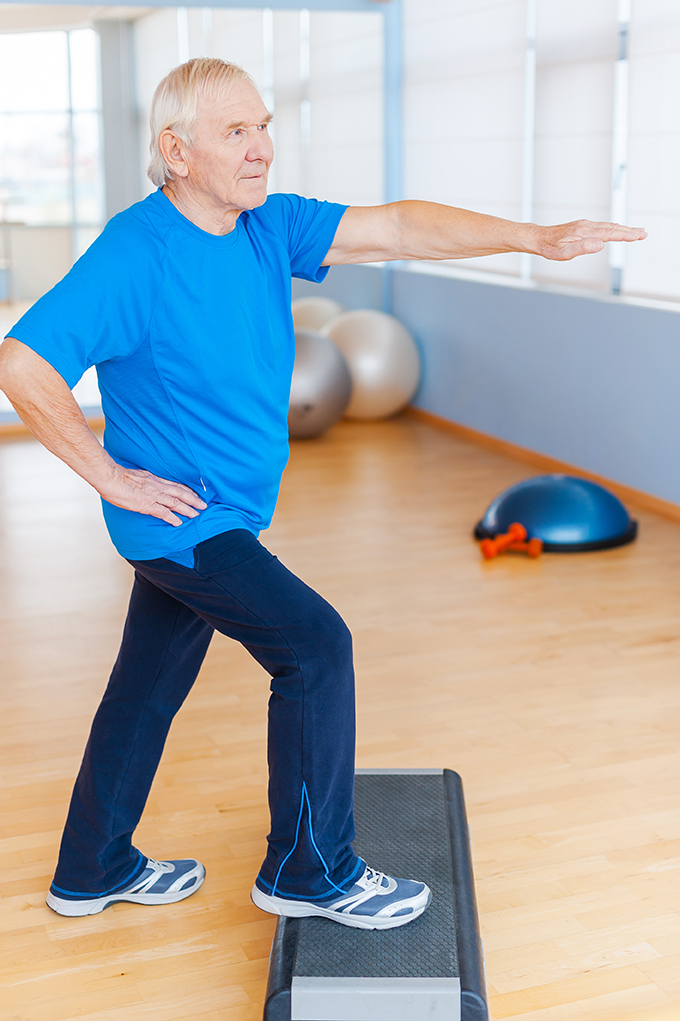Managing Your Exercise In a Pandemic: 10 Easy Exercises to Build a Strong Core Without Leaving the House
Just in time for the novel coronavirus (COVID-19) social distancing and closures of gyms and fitness centers in many areas, here’s a revisit of many important core exercises you can do at home to keep yourself strong and healthy. Download the free illustrated PDF (Chapter 21 of Diabetes & Keeping Fit For Dummies) for illustrations of the exercise listed below. (You can also find a variety of other at-home exercises on Diabetes Motion Academy Resources for free download.)
 Many people are stuck at home for one reason or another think they can’t work on staying fit, but the truth is that you can get a stronger core and stay fitter without leaving home. You’d be amazed at how easy it is to get your fit on.
Many people are stuck at home for one reason or another think they can’t work on staying fit, but the truth is that you can get a stronger core and stay fitter without leaving home. You’d be amazed at how easy it is to get your fit on.
Remember: Your body core — the muscles around your trunk and pelvis — is particularly important to keep strong so that you can go about your normal daily activities and prevent falls and injuries, particularly as you age. Having a strong body core makes you better able to handle your daily life, even if that’s just doing grocery shopping or playing a round of golf.
Core exercises are an important part of a well-rounded fitness program, and they’re easy to do at home on your own. To get started on your body core workout, you don’t need to purchase anything. (Some of the advanced variations do call for equipment like a gym ball or dumbbells.)
Tip: Include all 10 of these easy core exercises in your workouts, doing at least one set of 15 repetitions of each one to start (where appropriate). Work up to doing two to three sets of each per workout, or even more repetitions if you can. For best results, do these exercises at least two or three nonconsecutive days per week; muscles need a day or two off to fully recover and get stronger. Just don’t do them right before you do another physical activity (because a fatigued core increases your risk of injury).
#1: Abdominal Squeezes
This exercise (Figure 21-1) is great for working your abdominals and getting your body core as strong as possible. If you’re female and have had gone through a pregnancy at some point, getting these muscles in shape doing these squeezes is a must.
- Put one of your hands against your upper stomach and the other facing the other direction below your belly button.
- Inhale to expand your stomach.
- Exhale and try to pull your abdominal muscles halfway toward your spine.
This is your starting position.
- Contract your abdominal muscles more deeply in toward your spine while counting to two.
- Return to the starting position from Step 3 for another count of two.
Work up to doing 100 repetitions per workout session.
#2: Planks or Modified Planks
Nobody likes doing planks, but they get the job done when it comes to boosting the strength of your core. Both planks and modified planks (Figure 21-2) work multiple areas, including your abdominals, lower back, and shoulders.
- Start on the floor on your stomach and bend your elbows 90 degrees, resting your weight on your forearms.
- Place your elbows directly beneath your shoulders and form a straight line from your head to your feet.
- Hold this position as long as you can.
Repeat this exercise as many times as possible during each workout.
#3: Side Planks
A modification of regular planks, this side plank exercise (Figure 21-3) works some of the same and some slightly different muscles that include your abdominals, oblique abdominal muscles, sides of hips, gluteals, and shoulders. Try doing some of both types for the best results.
- Start out on the floor on your side with your feet together and one forearm directly below your shoulder.
- Contract your core muscles and raise your hips until your body is in a straight line from head to feet.
- Hold this position without letting your hips drop for as long as you can.
- Repeat Steps 1 through 3 on the other side.
Switch back and forth between sides as many times as you can.
Tip: Try these plank variations to mix things up a bit:
* Raised side plank: Lifting both your top arm and your leg upward brings other muscles into play and makes your core work harder to maintain balance, but don’t let your hips sag.
* Gym ball side plank: Resting your supporting arm on a gym ball, use your core muscles to control the wobble to further strengthen your side muscles.
* Side plank with lateral raise: While holding the side plank position, slowly raise and lower a light dumbbell or other weight with your top arm to improve your coordination and strength.
* Side plank pulse: From the side plank position, add a vertical hip drive by lowering your hips until they’re just off the floor and then driving them up as far as you can with each repetition of this move.
#4: Bridging
If you work on your abdominal strength, you also need to build the strength in your lower back to keep things balanced. Bridging (Figure 21-4) is a good exercise to do that as it works your buttocks (including gluteals), low back, and hip extensors. Remember to breathe in and out throughout this exercise.
- Slowly raise your buttocks from the floor, keeping your stomach tight.
- Gently lower your back to the ground.
- Repeat Steps 1 and 2.
Tip: Try the bridging with straight leg raise variation: With your legs bent, lift your buttocks up off the floor. Slowly extend your left knee, keeping your stomach tight. Repeat with the other leg. Do as many repetitions as possible.
#5: Pelvic Tilt
An easy exercise to do, the pelvic tilt (Figure 21-5) works your lower back and
lower part of your abdominals.
- Lie on your back on the floor with your knees bent and feet flat on the floor.
- Place your hands either by your sides or supporting your head.
- Tighten your bottom, forcing your lower back flat against the floor, and then relax.
- Repeat Steps 2 and 3 as many times as you can.
#6: Superhero Pose
Whether you want to leap a tall building with a single bound or not, try doing this superhero pose exercise (Figure 21-6) to get a stronger core. It works many areas, including your lower back, upper back, back of shoulders, and gluteals.
- Lie on your stomach with your arms straight over your head.
- Rest your chin on the floor between your arms.
- Keeping your arms and legs straight, simultaneously lift your feet and your hands as high off the floor as you can.
Aim for at least three inches.
- Hold that position (sort of a superhero flying position) for 10 seconds if possible, and then relax your arms and legs back onto the floor.
Tip: If this exercise is too difficult, try lifting just your legs or arms off the floor separately — or even just one limb at a time.
#7: Knee Push-Ups
Push-ups are hard to do if you haven’t built up the strength in your shoulders yet, so this knee version (Figure (21-7) is an easier way to start for most people. This exercise works your chest, front of shoulders, and back of upper arms.
- Get on your hands and knees on the floor or a mat.
- Place your hands shoulder-width apart on the floor.
- Tighten your abdominal muscles to straighten your lower back and lower yourself down toward the floor as far as you can without touching.
- Push yourself back up until your arms are extended, but don’t lock your elbows.
Tip: If knee push-ups are too hard for you, try doing wall push-ups to start instead. Stand facing a wall at an arm’s length and place your palms against it at shoulder height and with your feet about a foot apart. Do your push-ups off the wall.
#8: Suitcase Lift
This exercise (Figure 21-8) is the proper way to lift items from the floor. Before you begin, place dumbbells or household items slightly forward and between your feet on the floor. You work the same muscles used in doing squats (lower back and lower body) with this activity.
- Stand in an upright position with your back and arms straight, with your hands in front of your abdomen.
- Bending only your knees, reach down to pick up the dumbbells.
- Grab the dumbbells or items in both hands and then push up with your legs and stand upright, keeping your back straight.
#9: Squats with Knee Squeezes
These squats (Figure 21-9) are not your normal squats. They’re more like a combination of squatting and wall sitting with a twist. You work the front and back of thighs, inner thighs (adductors), hip flexors and extensors all with this one exercise.
- Stand with your back against the wall, with your feet aligned with your knees and straight out in front of you.
- Place a ball or pillow between your knees and hold it there with your legs.
- Inhale to expand your stomach and then exhale and contract your abdominal muscles.
- Bend your knees and lower yourself into a squat.
Warning: To avoid injuring your knees, don’t bend them more than 90 degrees.
- Squeeze the ball with your thighs, drawing your stomach muscles more deeply toward your spine.
- Do as many squeezes as you can up to 20 and then return to the starting position.
#10: Lunges
Lunges (Figure 21-10) are a common activity to work on the front and back of thighs, hip flexors and extensors, abdominals, and lower back all with one exercise. Do them with proper form to avoid aggravating your knees, though.
- Keep your upper body straight, with your shoulders back and relaxed and chin up.
- Pick a point to stare at in front of you so you don’t keep looking down, and engage your core.
- Step forward with one leg, lowering your hips until both knees are bent at about a 90-degree angle.
Make sure your front knee is directly above your ankle, not pushed out too far, and don’t let your back knee touch the floor.
- Focus on keeping your weight on your heels as you push back up to the starting position.
Tip: To prevent injuries, if you feel any pain in your knees or hips when you do a lunge, do the following instead:
* Take smaller steps out with your front leg.
* Slowly increase your lunge distance as your pain gets better.
* Try doing a reverse lunge (stepping backward rather than forward) to help reduce knee strain.
Reprinted from Colberg, Sheri R., Chapter 21, “Ten Easy Exercises to Build a Strong Core Without Leaving the House” in Diabetes & Keeping Fit for Dummies. Wiley, 2018.
Sheri R. Colberg, PhD, FACSM, is the author of The Athlete’s Guide to Diabetes: Expert Advice for 165 Sports and Activities (the newest edition of Diabetic Athlete’s Handbook). She is also the author of Diabetes & Keeping Fit for Dummies, co-published by Wiley and the ADA. A professor emerita of exercise science from Old Dominion University and an internationally recognized diabetes motion expert, she is the author of 12 books, 30 book chapters, and over 420 articles. She was honored with the 2016 American Diabetes Association Outstanding Educator in Diabetes Award. Contact her via her websites (SheriColberg.com, DiabetesMotion.com, or DMAcademy.com).



 P stands for physical needs. For instance, if you aren’t breathing, drinking water, and eating lots of nutritional foods, you probably won’t become the best version of yourself.
P stands for physical needs. For instance, if you aren’t breathing, drinking water, and eating lots of nutritional foods, you probably won’t become the best version of yourself.

 When you were born there was a fundamental principle that existed…a dream for your life so to speak. Everything in your life will make sense once you understand this. The dream for your life is that you become the best version of yourself. The dream in no way shape or form is that you become a second rate version of yourself. This leads me to friends.
When you were born there was a fundamental principle that existed…a dream for your life so to speak. Everything in your life will make sense once you understand this. The dream for your life is that you become the best version of yourself. The dream in no way shape or form is that you become a second rate version of yourself. This leads me to friends.



 Physical balance is complex and can change daily. Many clients will refer to how long they can stand on one leg when asked about balance issues, but how useful is this as a measure of their postural control or their risk of falling?
Physical balance is complex and can change daily. Many clients will refer to how long they can stand on one leg when asked about balance issues, but how useful is this as a measure of their postural control or their risk of falling?

 Have you ever wondered why a particular diet, workout routine or cleanse offers remarkable results for some people, but not others?
Have you ever wondered why a particular diet, workout routine or cleanse offers remarkable results for some people, but not others?